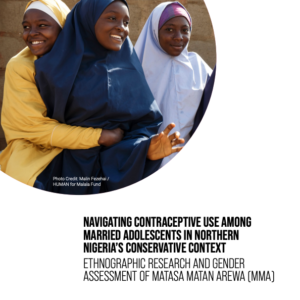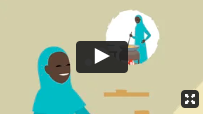
What is it?
By analyzing girls’ experiences with A360’s Matasa Matan Area (MMA), new independent research from Nigerian NGO, the Centre for Girls’ Education (CGE), explores how gender dynamics influence contraceptive decision-making among married girls in northern Nigeria’s conservative settings. The research looks at how well MMA is, and isn’t responding.
How did we use it?
Gender-transformative impact takes time. Programs like MMA may not shift entrenched patterns of gender norms overnight. But it’s a start – and a North Star to guide the journey ahead.
Among CGE’s findings:
- In Hausa society, men decide: In northern Nigeria, an adolescent girl enters into marriage at the bottom of an extended family hierarchy, expected to defer to her husband, mother-in-law and senior co-wives in a polygynous unit. Through a peer-mentorship model that engages girls and their husbands, MMA offers space for girls to initiate conversations about their reproductive health with husbands supporting the journey.
- Birth spacing is an “in:” MMA aligns contraceptive messages with community-supported concepts of family care, financial stability and the health of mother and child. MMA has encountered little controversy among community gatekeepers, suggesting that perceptions of birth spacing might, in fact, be a tipping point among some northern Nigerian communities.
- For girls, connection – rather than contraception – is the biggest draw: According to girls, MMA’s peer-mentorship model creates a warm and respectful space that fosters peer connections and a safe environment to ask burning life, family and health (LFH) questions. Still, as CGE’s research found, there’s room for growth: including finding ways of standardizing how and where mentors conduct LFH sessions to ensure consistency and confidentiality.
- Contraceptive continuation is the field’s leaky bucket: Like so many others in the sector, A360’s MMA wrestles with how to support girls to continue their method of choice. While MMA sees girls returning for follow-up, how can MMA, among other similar programs, strengthen follow-up protocols so girls trust that the health system is there for them well after their first visit?
Consider using it to:
This publication offers considerations for adolescent and youth contraceptive programs and practitioners navigating culturally complex contexts.
* * * *


